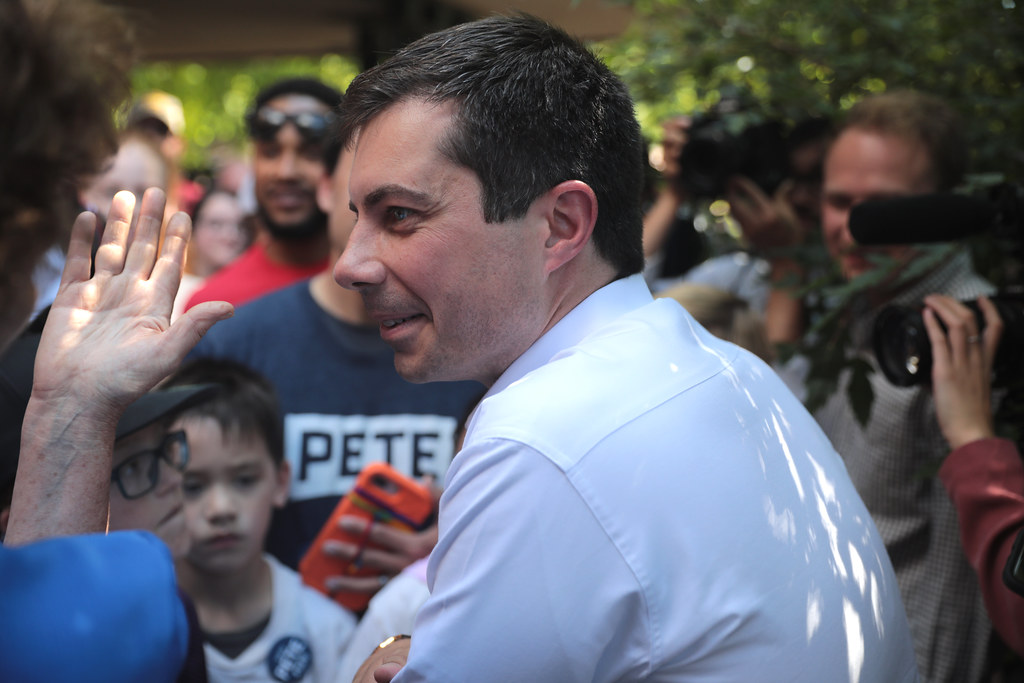Michael Baick is the co-chair of Harvard College Democrats for Pete.
Mayor Pete Buttigieg makes it no secret that he is the youngest one in the room. Indeed, the mayor himself epitomizes why so many young people are getting involved. He speaks movingly about his lived experience with modern challenges: $130,000 of student debt that weigh down his ledger, 13 feet of floodwater that challenged his administration, 119 trips outside the wire that defined his military service, and 1 tap on Hinge that would lead him to his husband. Mayor Pete has the motivation and the moral authority of someone who will, as he often repeats, reach Donald Trump’s age in 2055. Knowing that they will be around for the future, young people are securing it on the streets, in the ballot box, and in the 2020 field.
In his final months, Barack Obama saw them coming. In November 2016 he told the New Yorker to look out for new leaders like Kamala Harris and Pete Buttigieg, and in January 2017 he told Pod Save America, in his final presidential interview, that “there’s a generation out there that’s moving… just getting started.” His prediction might seem prophetic, but it probably has more to do with knowing history than seeing the future. The so-called Founding Fathers were 20-something-year-olds; Frederick Douglass gave his first address at age 23; Alice Paul was age 28 when she led a “Women’s Suffrage Procession” to protest Woodrow Wilson’s inauguration. Mayor Pete’s Presidential campaign rhymes with history, and he might even have the chance to change it.
To find parallels to our era, some — including the President, recently — look to the Civil War. Others prefer to look a few decades later, at the Gilded Age. Walt Whitman lamented this era of wasted potential, writing in 1871 that “genuine belief seems to have left us.” He saw “an atmosphere of hypocrisy” where “churches … usurp the name of religion … The official services of America … are saturated in corruption… and the judiciary is tainted.” The promise of equality and opportunity was deferred in the name of narrowly-defined prosperity. “In business, the one sole object is, by any means, pecuniary gain.”
In the 2020 primary, we find ourselves in a similar situation, weighing similar choices. We see the dangers of excessive concentrations of both wealth and atmospheric carbon. We try to hear the voices that have been silenced. We feel the urgency of our moment. We know that we can do something about it — we just cannot agree on how far we should go.
What we do not consider is that our policies alone might not be enough to get us there. Whitman warned “against the prevailing delusion that … free political institutions, and plentiful intellectual smartness … of themselves determine and yield to our experiment of democracy the fruitage of success.” We won the Civil War. We passed the 13th, 14th, and 15th Amendments. Yet the sociocultural power of racism and inequality persisted because the American people continued to believe in them. The political solutions were not enough — they were simply undone over the next few elections.
That is why Pete Buttigieg seeks more than political solutions. As a student of history and a Midwestern mayor, he knows that winning the era is not about winning a tug-of-war. As he says, “good politics is supposed to be not about the day-to-day fights of the politicians, but the day-to-day lives of Americans.”
We have been led to believe that our interests are opposed, society is a zero-sum struggle, and justice is merely a contract among competitors. It does not need to be this way. Mayor Pete wants to name and confront the real challenge of our time: uniting the republic. His presidency would begin with democratic reform, breaking the power of voter suppression and dark money and allowing the American people to shape our government. However, to make real and lasting change, our belief and our participation in American democracy must stretch far beyond Election Day. Pete, like Whitman, sees the lack of “genuine belief” as the root of our “corruption.”
The first community where we can create that belief is the classroom. That is why Chasten Buttigieg, Pete’s husband — a middle school teacher — is using his platform to advocate for renewed attention on the arts and humanities in American schools. English and History classes help us understand how different people live and feel. Music and theater programs allow people to create community together.
After graduation, Pete wants the next generation to hear a “New Call to Service,” his national service plan. The word “new” is important; it recalls the legacy of successes like the New Deal, which empowered Americans to serve their country by doing everything from rural electrification to urban mural-painting. Young people want to serve more than ever, but AmeriCorps and the Peace Corps are underfunded to the point that they reject half a million people — 85 percent of their applicants — every year. Mayor Pete wants to fund these programs fully, and to create new ones. The Climate Corps will allow young people to fight alongside the government, instead of against it, to save the planet; the Community Health Corps will tackle the growing challenges of addiction and mental health treatment; and the Intergenerational Corps will link young people and senior citizens as caregivers and mentors for one another. Working together will create mutual understanding among the American people. Our politics cannot and should not create unity of opinion, but they can foster unity of purpose.
This is the spirit of American democracy: you have something to contribute to the political, social, and cultural life of your nation, and so does everyone else. Across history, no generation has ever been pulled forward. Pete Buttigieg takes the longest view into our future by understanding this lesson from our past: we only succeed when we are all pushing together.
Image Credit: Flickr / Gage Skidmore
